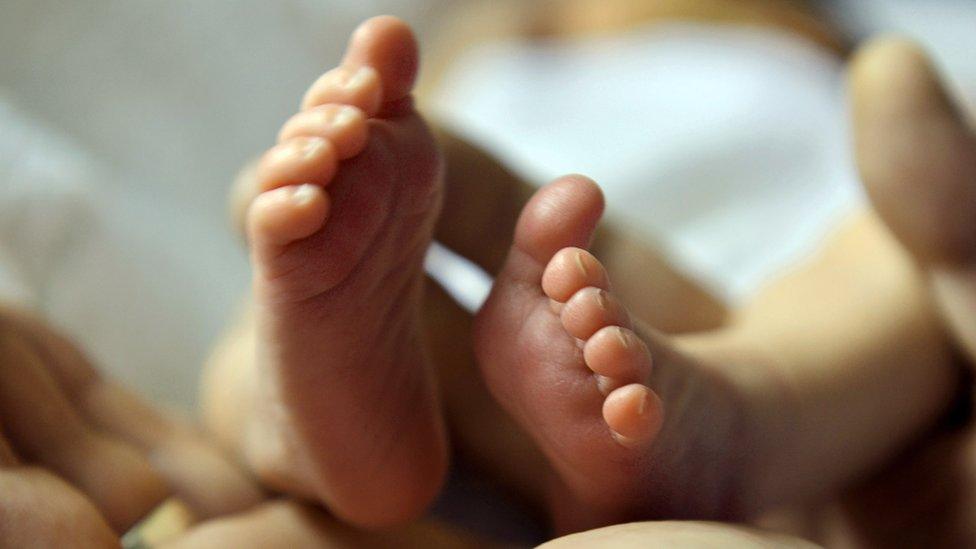Baby's life-support treatment can be stopped against parents wishes
- Published

Doctors in Sheffield said there was no prospect of the baby surviving
Life-support treatment for a severely ill eight-week-old baby boy can be stopped against his parents' wishes, a High Court judge has ruled.
The baby was diagnosed with necrotising enterocolitis (NEC) and has been in intensive care since three days old.
Doctors in Sheffield said there was no prospect of him surviving despite his parents arguing stopping the treatment was against their Muslim beliefs.
Mr Justice Hayden said: "I am satisfied that intensive care is futile."
NEC causes tissues in the intestine to become inflamed and start to die.
During the virtual hearing in the Family Division of the High Court in London, specialists said the baby, who has a severe liver impairment and cannot be identified, could not breathe without the aid of a ventilator and would die in pain if allowed to die naturally.
His parents praised the efforts made by doctors and nurses at Sheffield Teaching Hospitals NHS Foundation Trust but thought all options had not been exhausted.
They argue that while there was breath there was life, and while there was life there was hope.
'Best interests'
In his ruling, Mr Justice Hayden said: "The challenge is to ensure that his death is as comfortable and as dignified and as free from pain as can practically be achieved.
"I believe it is in the best interests of [the boy] to stop intensive care to move to palliative care."
He said it was the first time he had been asked to make such a decision about a child at a virtual hearing.
The parents, who were not represented by lawyers, watched proceedings on a mobile phone from hospital while sitting near their son.
His father said coronavirus restrictions meant he had not been able to visit when his son was born in hospital.
He said he had only seen his son in intensive care.
Mr Justice Hayden said the baby's parents held "profound" Islamic beliefs and told them: "I am so sorry."

Follow BBC Yorkshire on Facebook, external, Twitter, external and Instagram, external. Send your story ideas to yorkslincs.news@bbc.co.uk, external.